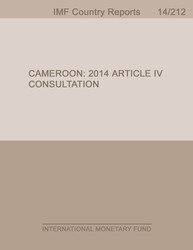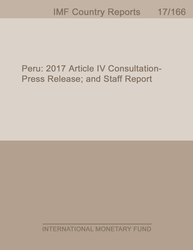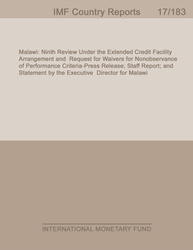
Cameroon: Staff Report for the 2014 Article IV Consultation
Volume/Issue:
Volume 2014
Issue 212
Publication date: July 2014
ISBN: 9781498342636
$18.00
Add to Cart by clicking price of the language and format you'd like to purchase
Available Languages and Formats
| English | ||||
| French |
Prices in red indicate formats that are not yet available but are forthcoming.
Topics covered in this book
This title contains information about the following subjects.
Click on a subject if you would like to see other titles with the same subjects.
Exports and Imports , Economics- Macroeconomics , Public Finance , Business and Economics - Statistics , ISCR , CR , right , real GDP , GDP , oil revenue , GDP deflator , financing gap , executive board assessment , private sector , revenue policy , Energy subsidies , Sub-Saharan Africa , Global
Also of interest
Summary
KEY ISSUES Context. Cameroon’s macroeconomic outlook and risks have deteriorated slightly since the Article IV consultation in 2013. Economic activity has remained strong and inflation subdued, but the fiscal position has worsened; public debt has been rising at a less sustainable pace; government deposits have dwindled; and payment delays have continued. The anticipated growth path may not suffice to reach upper-middle-income country status by 2035. Focus of the consultation and risks. The overarching policy issue remains unchanged: how to set Cameroon on a higher growth path, while mitigating low but growing risks to macroeconomic stability. Spillovers from regional insecurity have become the main exogenous risk; endogenous risks stem from rising contingent liabilities and credit concentration. Past policy advice remains relevant. Key policy recommendations: • Strengthen cash management and expenditure controls to prevent a further accumulation of payment deferrals. • Close the financing gap in 2014, and adopt a downward path for the non-oil primary deficit to rebuild fiscal space and preserve macroeconomic stability. • Improve non-oil revenue by broadening the tax base and streamlining tax exemptions. • Reprioritize public expenditure by reducing fuel subsidies gradually; provide targeted compensation measures for the most vulnerable. • Increase the selectivity of investment projects and adopt a rigorous screening of the financing terms to ensure debt sustainability. • Pursue the resolution of three small distressed banks and support the strengthening of regional bank and microfinance supervision. • Promote higher and more inclusive growth through better targeted educational and social spending, a propitious business climate, and deeper regional integration.
Copyright © 2010 - 2024
Powered by:
AIDC



